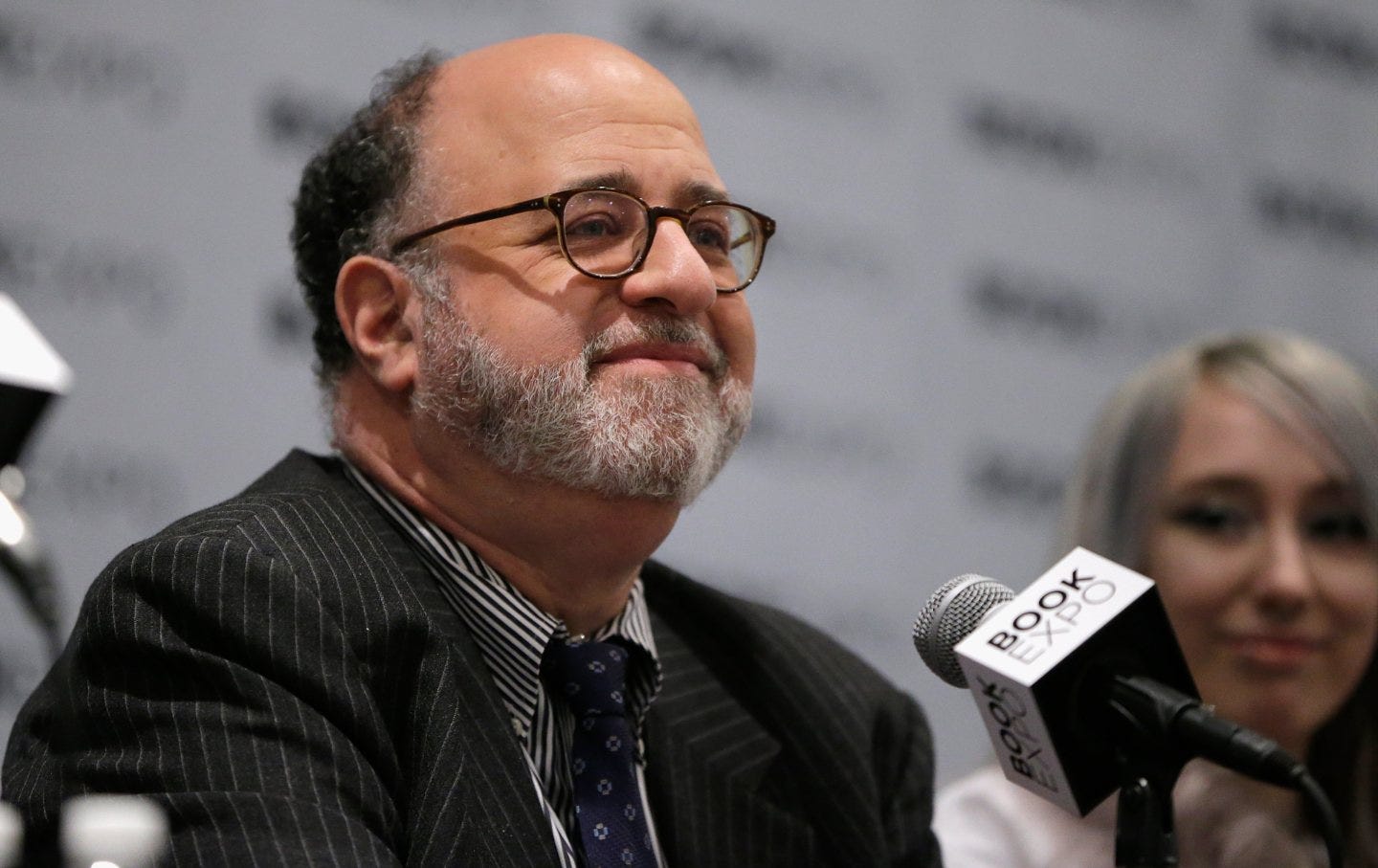John Podhoretz: From Commentary to Complicity
John Podhoretz's apologism for Trump exposes the neoconservative willingness to align with antidemocratic forces—even those trafficking in antisemitic tropes.
by Jeet Heer

John Podhoretz inherited from his famous parents his neoconservative worldview, an editorial sinecure at Commentary magazine, and the charming habit of presenting his ideas in so crude and blunt a fashion as to be self-discrediting. Podhoretz is the son of the late Midge Decter (who started working for Commentary in 1950) and Norman Podhoretz (who edited Commentary from 1960 to 1995 and remains on the masthead as editor at large). Commentary was founded in 1945 by the American Jewish Committee (AJC), so for the vast majority of its history it has been under the sway of one Podhoretz or another. Aside from the trio just named, the magazine has also published Naomi Munson (Midge and Norman’s daughter), Rachel Abrams (another daughter), Steven C. Munson (a son-in-law), Elliot Abrams (another son-in-law), and Sam Munson (a grandson). Not surprisingly, in 2003 Commentary published an excerpt of the book In Praise of Nepotism, by Adam Bellow (son of the famous novelist, who was also a Commentary contributor).
In launching Commentary, the AJC outlined a mandate that included aiding “in the struggle against bigotry.” It’s perhaps just as well that Commentary severed its relationship with the AJC in 2007, since today Commentary can more accurately be called a magazine devoted to aiding and abetting bigotry—including even at times anti-Jewish bigotry. The magazine has been animated with an obsessive anti-Black animus dating back to the 1963 publication of Norman Podhoretz’s notorious essay “My Negro Problem—And Ours.” Decter’s equally infamous 1980 essay “The Boys on the Beach” was a spectacular airing of hatred for gays and lesbians.
Now the Podhoretz scion has made his own contribution to this tradition. At a rally on July 3, Donald Trump praised the recent budget his party passed in these terms: “Think of that: No death tax. No estate tax. No going to the banks and borrowing from, in some cases, a fine banker—and in some cases, Shylocks and bad people.” This casual use of the term “Shylocks” was a relatively venial sin compared to Trump’s many other bigoted words and deeds (ranging from his 2017 “very fine people on both sides” comment in response to a neo-Nazi rally in Charlottesville, Virginia, to the current immigration crackdown), but it was still noxious and rightly condemned as antisemitic.
John Podhoretz had a different view. On the social media site X, Podhoretz tweeted, “Trump bombed Iran. He can say Shylock 100 times a day forever as far as I’m concerned.” With an admirably succinct brutality, Podhoretz articulated a long-held neoconservative principle: that bigotry, even antisemitism, is forgivable if done by someone who supports American militarism.
This history of this idea is worth tracing. Because Podhoretz is a Zionist and because the Iran bombing was conducted at the behest of Israel’s prime minister, it might be thought that the special license to antisemites is a narrow matter of supporting the Jewish state. In fact, there has long been a wider support of military hawkishness at play.
Before Commentary made its neoconservative turn in 1970, it was an organ of Cold War liberalism. The neoconservative attachment to Israel was combined with an older and deeper attachment to American empire. Within the context of the Cold War, it was often necessary to refurbish the reputation of various far-right (in some cases fascistic) figures who were stalwart anti-communists. This was expressed in the apocryphal adage attributed to Franklin Delano Roosevelt about a Latin American dictator: “He may be a son of a bitch, but he is our son of a bitch.”
Keep reading with a 7-day free trial
Subscribe to The Nation's Substack to keep reading this post and get 7 days of free access to the full post archives.




